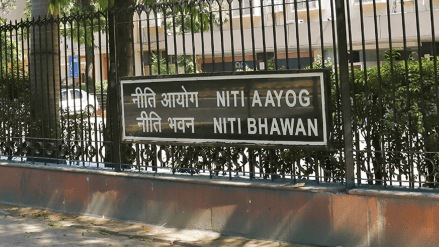In a move that will help accelerate foreign investments, a NITI Aayog paper on Friday suggested introducing an optional presumptive taxation regime with sector-specific benchmarks to reduce permanent establishment (PE) and profit attribution uncertainty on overseas investments in India.
Besides the presumptive tax regime, the Working Paper on ‘Enhancing Certainty, Transparency, and Uniformity in Permanent Establishment (PE) and Profit Attribution for Foreign Investors in India’, recommended broader legislative clarity, administrative efficiency, robust dispute resolution mechanisms, and strategic alignment with international best practices.
“This multi-pronged approach is anticipated to dramatically reduce litigation, boost investor confidence, improve administrative efficiency, and secure India’s tax base by attracting higher quality, sustainable FDI,” it said.
Presumptive tax regime
In the presumptive taxation regime, for instance, in the technology and equipment sector, it is suggested that profit attribution percentages could be at 5% of gross receipts for offshore supply and 20% for onshore services could be benchmarked.
A critical aspect is that if a foreign company opts for presumptive taxation for a particular activity, the tax authorities would not separately litigate the existence of a PE for that activity. This offers certainty by sidestepping the PE threshold debate, providing foreign investors with a clear path forward, it said.
Major PE disputes often take anywhere from 6 to 12 years to reach finality, tying up resources and increasing compliance costs and interest liabilities for foreign firms.
Legislative clarity and efficient dispute resolution
To foster a predictable tax environment, the NITI report said it is crucial to codify clear PE and profit attribution principles within domestic tax law. These definitions should align with internationally accepted interpretations from OECD and UN Models while strategically retaining India’s source-based taxing rights where appropriate to protect its tax base.
Significant investment is needed to expand the capacity of Advance Pricing Agreement (APA) and Mutual Agreement Procedure (MAP) programs, to drastically reduce resolution timelines for both prospective certainty (APAs) and existing disputes (MAPs).
“The next steps would involve the Ministry of Finance considering these recommendations, possibly constituting a working group to draft the legal provisions, consulting with stakeholders (industry bodies, tax professionals, treaty partners), and including the final proposals in an upcoming Finance Bill,” the NITI report said.
It said the time is opportune to implement a comprehensive presumptive regime.
“For foreign investors, the advantages are clarity in compliance, reduction in litigation risk, lower costs of doing business, and improved ease of operations in India,” said Vishwas Panijar, Partner, NangiaNXT.
For the Indian economy, it means attracting foreign investment that is rooted in genuine economic activity rather than facilitating tax arbitrage, Panijar added.
